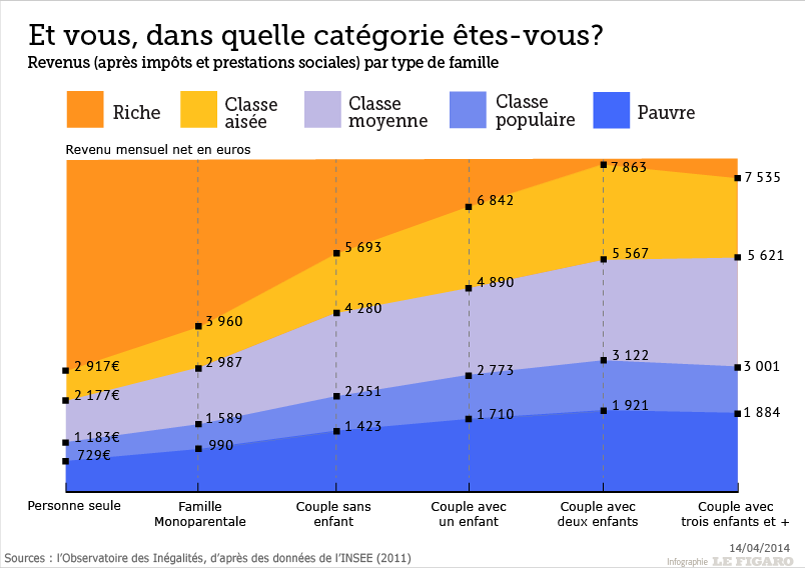Since defining class is difficult...
Actually the definition of class is at the root of any answer, and Marx distinguished classes by their relationship to the means of production.
The general idea of the American Revolutionaries was to establish the rights of capitalists against the aristocracy.
In the European "old world", most land was held by a hereditary class of aristocrats whose ancestors had acquired that land in military conquest, or through the political patronage of someone with military strength who had conveyed a landholding. The possession of land in this fashion conveyed certain practical rights to use a portion of the labour power of serfs, who also occupied those lands in a hereditary fashion.
Capitalist merchants established their wealth through networks of economic trade, and later by controlling investment activities (often at first relating to the "improvement" of land) and the contingent employment of farm managers and labourers.
These capitalist activities not only made the capitalists often richer than the aristocrats, but also challenged the traditional and hereditary principles on which both aristocrats and serfs defined their rights and obligations.
However, because the aristocrats controlled the law and other state machinery, they controlled the land on which all things must sit, and because their individual positions were heritable and could not be bought, they could typically subordinate the capitalists by extracting rent and by opposing any capitalist activity which (by either its nature or scale) would patently undermine the workings of the social order in a way detrimental to aristocrats.
The gradual transition of the Old World from feudal to the capitalist mode of production, eventually produced ideas that aristocratic rule should be completely overturned and replaced with capitalist rule. And the American Revolution is basically a fruition of these ideas.
Although there may be other strands of thought mixed in, when the American talks of "equality" he means a status between men which is not complicated by a biologically heritable status (as defines the aristocracy), and by "liberty" he means the freedom to engage in capitalist activity and pursue the interests of the capitalist class.
The inheritance of wealth is not precluded under this scheme, because it was not their intention to equalise the starting point of each generation, their intention was to unleash the capitalist class (whether its members had inherited their wealth or made it in their own lifetimes), and to allow the capitalist rich to rule according to their wealth.
It is debatable whether the USA historically matched these ideals with slavery being a standout counteraxmple.
The United States of America, as a state entity, actually has a fairly unambiguous de jure record on the issue. It has opposed slavery and fought an internal Civil War over the issue of abolition.
The Old World too has generally rejected slavery as a radicalising and destabilising practice since time immemorial.
Slavery largely arose in the somewhat ungoverned and uncivilised space when the New World was being populated and converted to agricultural use by those emanating from and trading with the Old World.
The capitalists are not opposed to slavery on principle. The American Revolutionaries inherited (rather than established or promoted) the widespread practice of slavery, but within a generation or so they had purged it. They did so because of the contradictions it posed to their anti-aristocracy project, and because of the political and military weakness it would ultimately engender.
Conclusion
America does not even suppose to be an "egalitarian" society, and never has. It opposes specific forms of inequality and class society which are not based on possession of wealth, nor based on demonstrable competence in capitalist activity.
To understand what its conception of equality and liberty means, one must refer to the (largely defunct) feudal relations to which it was opposed.
The only vestige that may be witnessed today is in the virulent hatred that liberals, who might otherwise be quite content with undemocratic rich-rule, reserve for monarchs. They may make much of the monarch's special legal status, their tax affairs, even their holdings of hereditary wealth.
But the underlying objection of liberals is that the monarch has these things due to a biological inheritance, that the status of monarch cannot be sold by the incumbent or purchased by someone richer, and that the monarch is not required to engage in any capitalist challenge or demonstrate capitalist superiority to justify their continued occupation of their role.
Because the monarch continues to have a different relationship to the means of production in this way, liberals instinctively perceive the continued threat to their model, and that a relatively economically powerful and very well-known and politically powerful (and often popular) figure exists in the land who is not essentially a capitalist.
